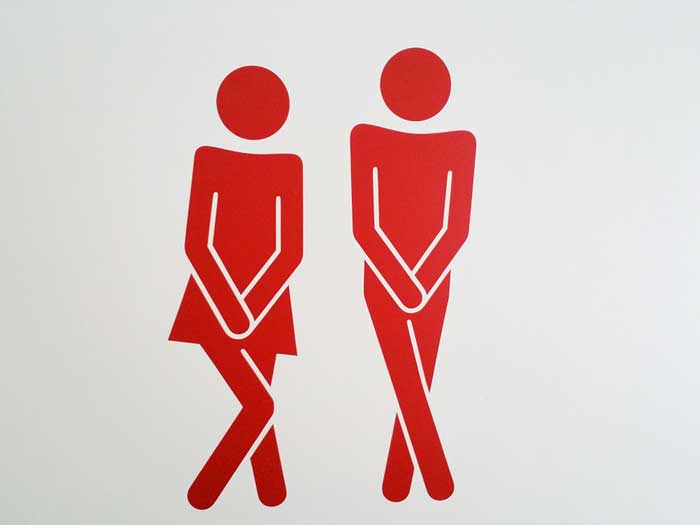 Is it harmful to hold the urine when you want to go to the toilet? And how long is it not harmful to hold it? What can happen if you do not go to the toilet for a long time, when you really need it?
Is it harmful to hold the urine when you want to go to the toilet? And how long is it not harmful to hold it? What can happen if you do not go to the toilet for a long time, when you really need it?
How long can I hold the urine?
Most women can hold urine from 3 to 6 hours. Naturally, these are the average figures, which strongly depend on the circumstances: the volume of the fluid drunk, the temperature of the environment, and also the individual characteristics of the bladder – its volume and sensitivity.
Do I have to rush to the toilet as soon as I feel the urge?
The answer is also individual, but the question is what exactly an urge is. For some, this is a subtle need, and for others the urge is an intolerable need (bordering on pain) to immediately go to the toilet. Doctors recommend finding the middle ground – it makes no sense to run at every first slight urge, but you cannot suffer from it until you feel pain.
What is the worst thing that can happen if you hold the urine for a long time?
According to experts, the bladder will not burst when you hold the urine. However, if it is filled to the edge, it can burst from an external impact: a shock or a sudden movement involving the abdomen muscles. The most common cause of bladder damage are accidents, such as falling from a height or a heavy object falling on the lower part of the abdomen. In this case, the probability of death is very high.
What are the consequences of restraining the urge to go to the toilet?
Urine contains acids and ammonia, which begin to damage the walls of the bladder in case of prolonged contact with them.
Bacteria accumulate in the urethra, although they could be washed with urine. When we hold urine, they multiply, get “attached” to the walls of the bladder and cause cystitis.
The bladder is stretched excessively and will not be able to work properly with time.
Walking with a full bladder promotes the formation of kidney stones.
Bladder ureter reflux is a terrible thing! The disease develops at a time when urine from the bladder returns back to the kidneys.
Bloating, accumulation of toxins in the body, pain in the pelvic area, and poor health are only a few of the possible consequences. One can hold the urine for a maximum of 10-15 minutes!
What about defecation?
There is nothing good about enduring the urge and holding feces.
First, fecal masses return from the rectum into the intestine. At the same time, they lose moisture, which complicates further emptying and leads to constipation.
Secondly, steroid hormones, which have already performed their function in the body, are excreted by the intestine. But if you hold the feces, these hormones are absorbed again into the blood and … create hormonal problems.
Thirdly, the stretched intestine (like the bladder) loses its sensitivity to urge, and over time the risk of incontinence increases.
As you can see, holding the urine or feces is much more dangerous than entering the most dirty public toilet. Stay healthy!









